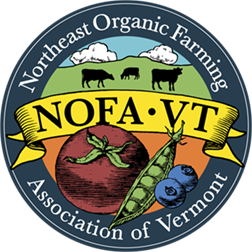Vermont Farmers Market Conference 2025
Description
The 2025 Vermont Farmers Market Conference is coming up on Monday, March 17th!
.jpg)
This year we will be gathering at the Red School House on the Randolph campus of Vermont State University in Randolph Center. Please join us for a day of learning and networking with other farmers market leaders!
Farmers markets are integral to our thriving local food system, and serve as important small business incubators. This annual conference brings together market managers, organizers, vendors, and supporters from across the state for a full day of education, resource-sharing, and networking. The conference offers resources and information from service providers, state agencies, and fellow market organizers.
Visit www.nofavt.org/events/annual-nofa-vt-events/farmers-market-conference for workshop and conference details.
For questions, please contact Andrew Graham via email or call (802) 419-0029.
This conference is sponsored by a USDA AMS Farmers Market Promotion Program grant and the Vermont Agency of Agriculture, Food, & Markets.
Registration Fees:
Markets that have renewed their membership in the VTFMA for 2025 are eligible for discounted registration! The market board members, manager and vendors may use the member rate. NOFA-VT members who aren't affiliated with a VTFMA market may also use the reduced rate. As with all NOFA-VT events, people identifying as Black, Indigenous or a Person Of Color may opt for free registration to this conference.*
- VTFMA/NOFA-VT members: $50
- Non-members: $60
- If one person from your market is paying for a full-price registration, additional people from your market may register for $25
- BIPOC (Black, Indigenous or Person of Color): Free of charge
Please email Andrew Graham if:
- Your market cannot afford the registration fee
- You prefer to pay by check
- You would like to take advantage of the childcare support we are offering
*NOFA-VT offers free registration for our events to anyone who identifies as Black, Indigenous, or a Person Of Color (BIPOC) in an effort to actively work toward dismantling systems of racism that have historically disadvantaged these communities—particularly in agriculture and land access—and continue to do so today. You can read our Statement of Intention on Social Justice here.
